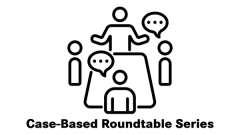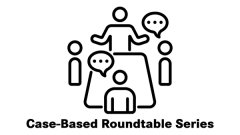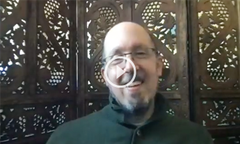
Drawing Comparisons for Relevant Therapies in Patients With DLBCL
Elizabeth A. Brem, MD, discusses treatment options for patients with diffuse large B-cell lymphoma.
Episodes in this series

Elizabeth A. Brem, MD, an assistant clinical professor in the Division of Hematology/Oncology, School of Medicine at the University of California, Irvine, discusses multiple types of therapies used in diffuse large B-cell lymphoma (DLBCL).
There are 2 approved bispecific antibodies available, epcoritamab (Epkinly) and glofitamab (Columvi), which have similar efficacy and adverse events (AEs), but differences in administration routes. The main distinction is in treatment duration: glofitamab is fixed, while epcoritamab continues until disease progression.
Brem also mentions potential barriers to these treatments she discussed at a Case-Based Roundtable event, such as access and risk of cytokine release syndrome. She explores alternatives like tafasitamab (Monjuvi) with lenalidomide (Revlimid), referencing the L-MIND trial (NCT02399085), and loncastuximab (Zynlonta), highlighting its payload and dosing schedule, which are unique from other antibody-drug conjugates, based on the LOTIS-2 trial (NCT03589469).
TRANSCRIPTION:
0:10 | The 2 approved agents we have in DLBCL are called epcoritamab and glofitamab. They both have similar response rates with all those caveats of cross-trial comparisons. They have very similar [AE] profiles. They differ slightly in terms of the route of administration—one is intravenous, one is subcutaneous—the dosing schedule, and actually I think the major difference when you're sitting down and counseling a patient, is glofitamab is fixed duration vs epcoritamab at this moment is treat to progression.
0:43 | But there may be a reason that people can't or won't or don't want to receive those therapies. Maybe they're not available at their center, [or] because they have risk of cytokine release syndrome or [because] there is recommended hospitalizations. Maybe there's just no access to those things where they live. We did talk about a couple of alternatives, namely tafasitamab/lenalidomide, so it's a combination of a CD19 antibody with lenalidomide, which is an oral medication. We talked about the L-MIND study, which is a single-arm phase 2 [trial] that led to the approval of that drug.
1:13 | We also talked about a drug called loncastuximab, which is an antibody-drug conjugate. It's a little different than a lot of the ones many of us are used to. In lymphoma, we've used polatuzumab vedotin [Polivy] and brentuximab vedotin [Adcetris]; this one has a different…payload or different toxin conjugated to it, so it has a different [AE] profile. It also targets CD19; actually, that one has a very nice dosing schedule. It's once every 3 weeks. We talked a little bit about the times where people may use that drug, but that was approved based on what's called the LOTIS-2 trial.


















































